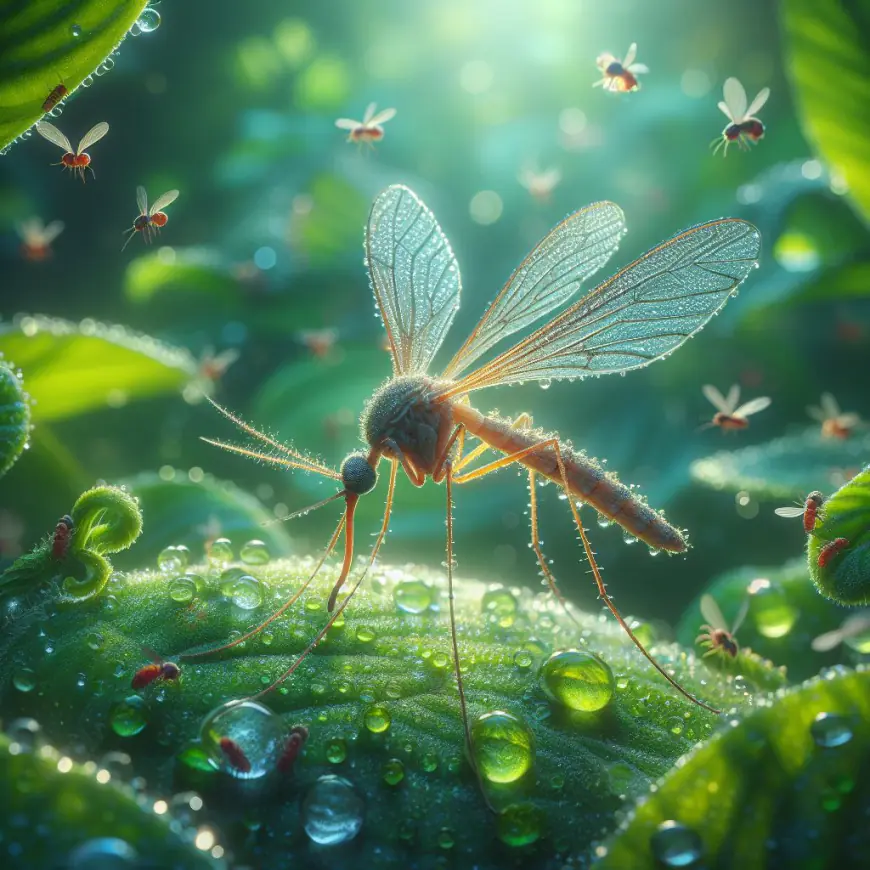Beware! Mosquitoes: Top Global Killer
“Explore the deadly impact of mosquitoes, the world’s top killer, and our global fight for survival.”

Beware! Mosquitoes: The Silent Assassins
Introduction
We are at war with the mosquito. These tiny, buzzing creatures have infiltrated every corner of our planet, except for Antarctica, Iceland, and a handful of French Polynesian micro-islands. Armed with a deadly arsenal of biological weapons, the female mosquito is humanity’s deadliest predator. But why? How did this seemingly innocuous insect become our nemesis?
The Lethal Arsenal
- Biological Weapons: The female mosquito carries at least 15 lethal and debilitating biological weapons. These include malaria, dengue fever, Zika virus, and yellow fever. She deploys these weapons against our 7.7 billion-strong human population, often with devastating consequences.
- Adaptability: Mosquitoes adapt rapidly to changing conditions. Their cold-blooded nature means they cannot survive in environments below 10°C. Yet, they thrive in diverse climates, from tropical rainforests to arid deserts.
- Global Reach: Marching armies and explorers brought new diseases to distant lands, but it was the mosquito that facilitated their spread. Our immune systems, finely tuned to local environments, were caught off guard by these foreign pathogens.
The Deadly Toll
- Annual Deaths: Since 2000, mosquitoes have caused an average of 2 million human deaths annually. Malaria remains a significant killer, but our counterattacks are reducing its impact.
- Other Predators: Humans come in a distant second, followed by snakes, dogs, sandflies, and the tsetse fly. The fierce killers of lore—crocodiles, hippos, and lions—are much further down the list.
- Indirect Harm: The mosquito doesn’t directly harm anyone. It’s the diseases she transmits that cause desolation and death. Without her, these pathogens couldn’t continue their cyclical contagion.
Eradication Dilemma
- Can We Eradicate Mosquitoes?: Scientists are exploring ways to eradicate mosquitoes using gene-editing techniques like CRISPR. But should we? What ecological consequences might follow?
- Balancing Act: While eliminating mosquitoes would save lives, it could disrupt ecosystems. Mosquitoes serve as food for other creatures, and their absence might trigger unforeseen chain reactions.
The Silent Symphony of Mosquitoes
The Dance of Life and Death
In the quiet hours of twilight, when the sun dips below the horizon and shadows stretch across the land, a symphony begins. It’s not the grand orchestras of human concert halls; it’s the delicate hum of mosquitoes. These tiny, seemingly insignificant insects are the architects of life and death, weaving their intricate melodies across continents.
I. The Prelude: A Buzz in the Night
A. The Unseen Threat
The mosquito’s arrival is stealthy. She glides through the air, her wings beating at an astonishing 600 times per second. Her target? You—the unsuspecting human. She’s a silent assassin, her proboscis poised for action. You feel a slight sting, a momentary itch, and then she’s gone. But her legacy remains.
B. The Lethal Arsenal
The female mosquito is the harbinger of doom. She carries within her tiny body a lethal arsenal of diseases. Malaria, dengue fever, Zika virus—the list goes on. With each blood meal, she injects these pathogens into her unwitting host. The consequences can be dire: fever, organ failure, paralysis, and death.
II. The Rising Crescendo: A Global Menace
A. The Numbers Game
Since the turn of the millennium, mosquitoes have claimed an average of 2 million lives annually. Malaria, their most notorious weapon, has been responsible for much of this toll. But it’s not just the direct fatalities; it’s the ripple effect—the families shattered, the communities destabilized.
B. The Unlikely Heroes
Humans, in their hubris, often forget that they are not the apex predators. Mosquitoes outstrip us in sheer numbers. For every human on Earth, there are approximately 100 million mosquitoes. They outnumber us, outmaneuver us, and outlive us.
III. The Climax: Eradication or Coexistence?
A. The Genetic Gambit
Scientists wield a double-edged sword: gene-editing techniques like CRISPR. Could we eradicate mosquitoes altogether? The allure is undeniable—the end of malaria, the cessation of suffering. But what of unintended consequences? Ecological upheaval, disrupted food chains, and unforeseen chaos.
B. The Delicate Balance
Perhaps eradication isn’t the answer. Coexistence, then? We must tread carefully. Mosquitoes are more than vectors of disease; they are sustenance for other creatures. Birds, bats, and fish feast on them. Remove the mosquito, and the delicate balance tips.
IV. The Coda: A Hum in the Night
A. The Legacy
As you swat away that persistent buzz, remember this: the mosquito is not merely an annoyance. She is a survivor, a relic of ancient times. Her legacy is etched in the blood of millions. She reminds us that life and death are intertwined, that the smallest creatures can wield the mightiest power.
B. The Ode to the Mosquito
So let us compose an ode to the mosquito—a creature both reviled and revered. May her song echo through the ages, a reminder of our vulnerability and resilience. And as the night falls, listen closely. You might just hear her hum, the silent symphony of survival.
Conclusion
The mosquito, our silent assassin, has shaped human history and continues to influence our present reality. As we battle her, we must tread carefully. Perhaps eradication isn’t the answer; perhaps coexistence is. But one thing is certain: the mosquito’s legacy is etched in the blood of millions.
Remember this next time you swat away that annoying buzz—it’s not just a mosquito; it’s a harbinger of life and death.
What's Your Reaction?







































